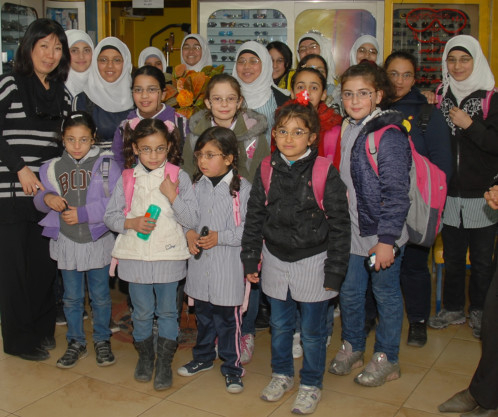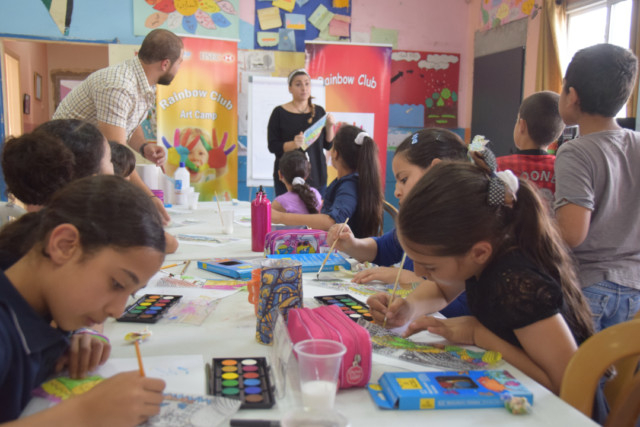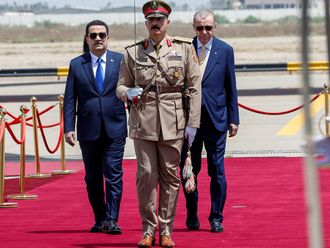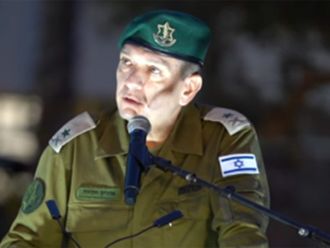
With the ongoing political turmoil in the Middle East resulting in refugees streaming across borders, we should not forget that many Palestinians are still refugees in what remains of their future state and they have become somewhat of a permanent fixture. The newest generation has been the focus of humanitarian work for an international non-governmental organisation, Heart to Heart, since 1996, both in the Gaza Strip and West Bank.
Gary Sutton, the director, says: “We began with just a handful of aid workers, each committed to using their expertise and experience to improve the quality of life of Palestinians. Initial projects were in the educational support fields with a particular focus on the needs of children and youth. Working with like-minded individuals and organisations over the past 15 years, Heart to Heart has, to date, provided, among other projects, over 1,200 edutainment programmes for approximately a quarter of a million children as well as more than 100 training programmes for youth, teachers and parents.”
In these difficult times, with international aid agencies focusing on the plight of refugees in other parts of the region, Palestinians are still experiencing many hardships, including a lack of basic needs, such as eyeglasses for their children, something often beyond their meagre budgets.
Nathari is a project designed by Heart to Heart to mitigate this impediment so that students may attain their full potential.
Akemi Yanagawa, project manager, explains that as part of the project “students from refugee camps or marginalised schools have their vision checked by qualified medical staff. All those needing eyeglasses are taken to optometrists in groups of 20 to 30 per day in transportation provided through this programme.” There they have their vision checked a second time, and while their prescription glasses are being made, they are taken to lunch. After lunch they return to the optometrists and are fitted with their new glasses. They then return to their school equipped with enhanced vision to aid their education.
“Qalandia refugee camp has serious cases. More than 30 per cent to 40 per cent of children have had their eyes previously checked but since parents were not able to pay for their eyeglasses little had been done to solve this problem. We have stepped in at this late stage to help salvage the situation.”
Another of Heart to Heart’s successful programmes has been two 3-day Rainbow Club Art Camps for 100 children from seam line (the name given to the unofficial boundary between the West Bank and Israel, where the latter has erected the wall) community Qibya and Qalandia refugee camp.
Majd Masri, one of the arts teachers, had this to say about her experience. “I enjoyed teaching the children. These programmes provided opportunities for them to exercise their creativity, something that is lacking in their school curriculums. Children need to be exposed to something beautiful and colourful to expand their creative minds and these courses provided a variety of ideas and gave them a chance to explore.”
In the backdrop of the Gaza War this summer, Heart to Heart helped channel children’s attention away from the death, destruction and sad news that they were exposed to daily via their televisions, by focussing on creating art and thus psychologically taking their minds off all the sadness and negativity around them.
One of the students, had this to say, “I enjoyed learning different types of drawing and how to make a simple gift such as a flower set or a candle stand. It was so much fun. I am happy to receive a new set of colouring pencils, water paints and other stationary items and my school bag. My parents can’t afford to buy these extra items and it is so special and made me happy.”
On the macro-level, the Palestinian education system has been hard pressed to keep up with the increasing demands of the growing youth population. School dropout rates are increasing and recent statistics show that 1 in 5 students do not complete their high school studies. Learning achievements have also deteriorated.
Even here Heart to Heart has stepped in with many projects designed to lend a helping hand, namely — IT labs, scholarships for high school graduates and tutoring for final year students. A computer learning programme is also planned.
Yanagawa explains their Back to School programme, “In counsel with UNRWA Education Department officials, needy communities are identified. Before the school year begins students from these refugee camps receive a school bag with basic items such as books, pens, pencils, rulers, etc, which they will need for the year. This provides meaningful support to impoverished families and hopefully helps reverse the downward trend in the Palestinian educational system.”
Furthermore, she notes: “This year we will also provide school bags for children in Gaza and keep our commitment to the children in the West Bank.”
She says Heart to Heart’s projects are at present aimed primarily at community development and training fields. Projects include installation of computer labs in schools and institutions, providing playgrounds, kindergarten upgrades, interventions for children in conflict zones and economically challenged areas, training seminars and educational support, and development projects.
It’s not just about learning though. Heart to Heart also plays a role in fun and games. The Border Village Football Competition, for seam line villages is a recent initiative. The first competition involved Budrus, Al Midya, Shuqba and Qibya. “The expanded and second competition included 8 seam line communities,” Sutton says. “As part of the overall strategy, we are exploring ways to provide each cluster of four communities with a full-size playing field with basic amenities. Once we have completed the feasibility study and obtained solid commitment from the community involved to contribute in some way to the project, we will seek funding for these football fields.”
Once funding becomes available Heart to Heart has plans to expand this programme to include other West Bank communities and hopes to include Gaza communities in future competitions.
Heart to Heart is passionately driven by Sutton, who hails from New Zealand, and his wife Yanagawa who is Japanese. They came to Gaza in 1997 from Vietnam and lived in the tiny and impoverished Strip during the Second Intifada. In 2004 they moved to the West Bank but temporarily left for Lebanon in 2007. They worked for Family Care Lebanon for two years before moving to Dubai with Action Care until 2010. In early 2011 they returned to Palestine to continue from where they left off.
“During our many years in Palestine we have found that hope in the future is what is most needed, especially among the younger generation. We trust that our modest efforts to provide support give a measure of this most needed commodity. We also want to acknowledge and thank all who have helped make the work here possible. Heart to Heart’s work in Palestine continues to be a genuine team effort,” Sutton says.
Although the occupation remains the heart of the conflict, with the untold misery and suffering it has caused to Palestinian refugees, it is projects such as those provided by Heart to Heart that bring relief and a measure of hope to them and eases their plight.
Rafique Gangat, author of “Ye Shall Bowl on Grass”, is based in occupied Jerusalem












